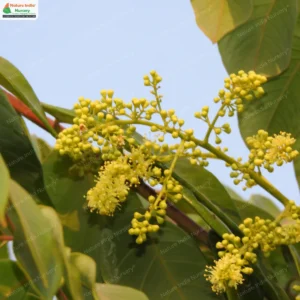Diospyros sylvatica, commonly known as the Forest Ebony, is a small tree species native to southern India and Sri Lanka. This tree typically grows in seasonally dry tropical biomes and can reach up to 18 meters in height. It is commonly found in mixed and deciduous forests, often in damp areas and sholas. The tree’s distinctive features include its dark, glossy leaves and small, white flowers, which are followed by small, yellowish-brown fruit.
Diospyros sylvatica is a versatile species, with various parts of the tree being used for different purposes. The tree’s timber is highly prized for furniture-making, construction, and other applications, while the leaves and fruit are used in traditional medicine to treat a range of ailments. The tree’s conservation status is currently not evaluated, but its habitat in the Western Ghats is a biodiversity hotspot facing threats from deforestation and habitat loss.
Habitat
Diospyros sylvatica typically grows in mixed and deciduous forests, often in damp areas and sholas.
Planting and Care
-
Light: Prefers partial shade to full sun, with indirect sunlight or filtered light being ideal.
-
Soil: Requires well-drained soil that retains moisture without becoming waterlogged.
-
Watering: Regular watering is necessary, especially during the growing season, to keep the soil consistently moist but not soggy.
-
Maintenance: Occasional pruning is beneficial to remove dead or damaged branches and maintain the tree’s appearance.
Additional Information
-
Timber: The tree’s timber is highly valued for furniture-making, construction, and other applications.
-
Medicinal Properties: The leaves and fruit are used in traditional medicine to treat a range of ailments.
-
Ecological Significance: Diospyros sylvatica provides food and shelter for various animals, contributing to its ecosystem’s biodiversity.



